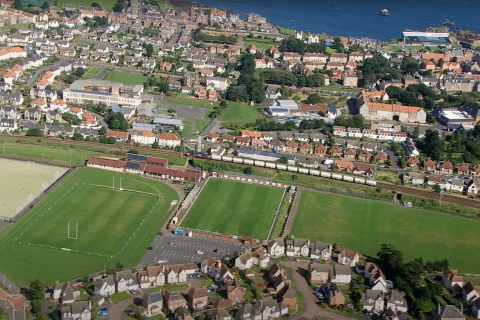Greece: accident report reveals chronic pathologies of Greek railways
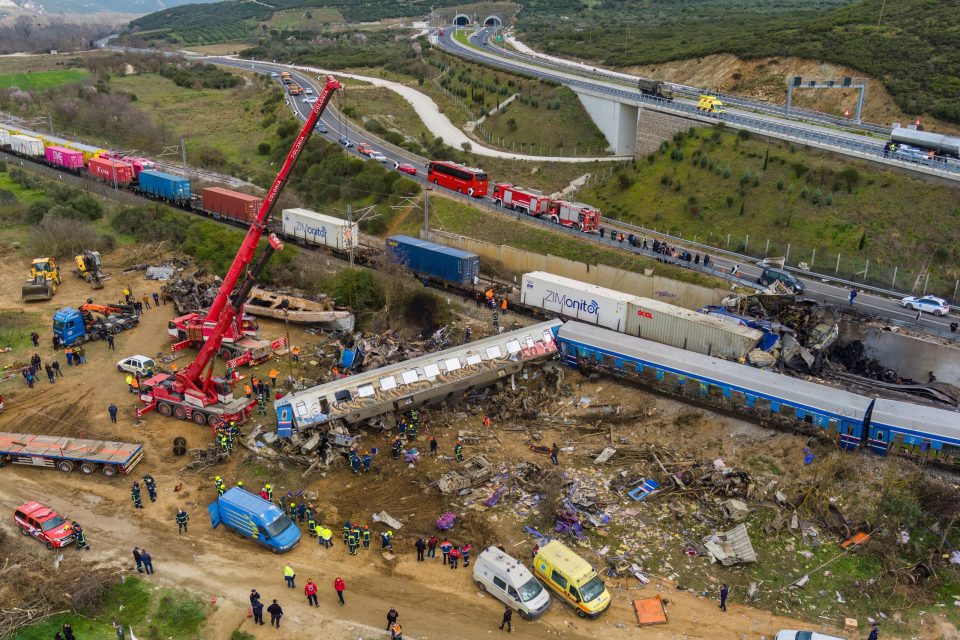
The Greek railway network lacks basic safety and communication elements such as signalling, ETCS and GSM-R. In addition, rail traffic on sections of the central Greek rail axis is controlled manually and regionally by employees who are often undertrained. These factors appear to have contributed substantially to the fatal train accident in Tempi Valley, Greece.
These are some of the findings of the accident report carried out by the Greek Ministry of Infrastructure and Transport. The accident occurred on 1 March and, according to official sources, cost the lives of 57 people. Since the first hours after the accident, the focus turned on the station master on duty, who allegedly made a mistake when switching the train paths, putting the two trains that collided on the same track.
Many in Greece, including a portion of the press, politicians and the public, have claimed that the station master was the government’s scapegoat in an attempt to denounce its responsibilities resulting from the neglect of the Greek railways and the lack of needed investments, especially concerning safety systems like ERTMS and ETCS.
Human error, in this case, is not to be ignored. It is a crucial factor that contributed to the accident and hindered its avoidance. However, as the ministerial report suggests, human errors could have been avoided if fundamental safety systems, like signalling, had been in place or other safety protocols, like a double station master shift, had been implemented.
The human factor
To begin with, the accident report zoomed in on the situation during the accident. The main conclusion was that the station master on duty made a mistake putting two trains on the same track, leading to their collision. Moreover, the report claims that the station master did not communicate with the train drivers sufficiently and timely to inform them about the route change.
On top of that, the two drivers failed to communicate with each other. If only one of them had informed the other that they are moving on the same line, the fatal accident could have been avoided. However, it was only partially in the hands of the drivers to communicate since their trains lacked essential GSM-R equipment. We will get to this shortfall in a bit.
Having acknowledged the aspect of human error, the shortfall of the employee can also be attributed to insufficient training of station masters working in the Greek railway network. In fact, this is one of the main conclusions of the report. Station masters in Greece receive four months of theoretical and 1,5 months of practical training. Compared to employees in other countries like the US, Austria, Switzerland or the UK, the practical training is significantly less, highlighting that the issue is more profound than simply a human error.
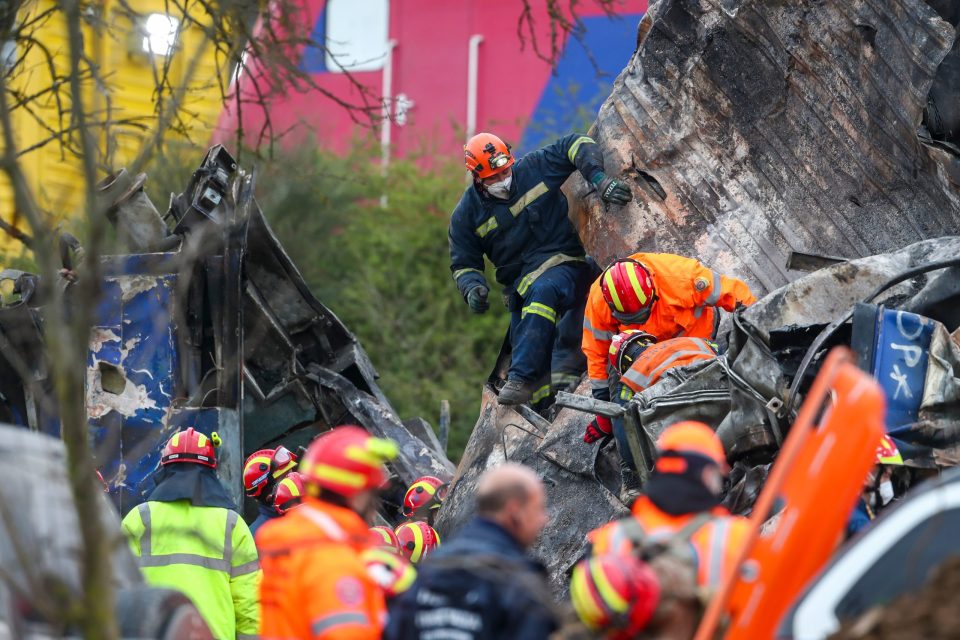
Lack of basic safeguards
The Greek Ministry of Infrastructure and Transport recognises that human errors can lead to fatal mistakes. Nevertheless, it also recognises that more could have been done to avoid this. For instance, instead of one, there should be two station masters on duty so that an extra pair of eyes could help locate and resolve possible issues, like the incorrect routing of trains.
Moreover, train traffic should be monitored by a central controller, who, by receiving information via GSM-R, should be able to accurately locate all trains moving in the network and thus avoid a mistake. Not only was no such central traffic controller on duty at the accident’s time but, as explained before, the trains were not equipped with GSM-R, meaning that, in any case, it would be almost impossible to locate their position and stop them from colliding.
Obsolete network conditions
What is even more important than the human factor when it comes to the deadly accident is the network condition. As many have been saying in Greece since early March, even if this accident had been avoided, another one might have occurred soon. Critical in this case is the lack of fundamental safety measures and systems taken for granted in other countries.
For instance, the section route on which the two trains collided has had no signalling since 2019, when a fire destroyed the relevant equipment. As a result, traffic control relied solely on communication between station masters. If signalling worked, reads the report, the freight train moving southwards would be unable to exit the last station it passed through. Thus, the possibility of a collision would be eliminated.
Furthermore, ETCS would, of course, safeguard safety in this case. However, even though the line is equipped with ETCS Level 1, it does not work since a signalling system is one of the main prerequisites for its operation.
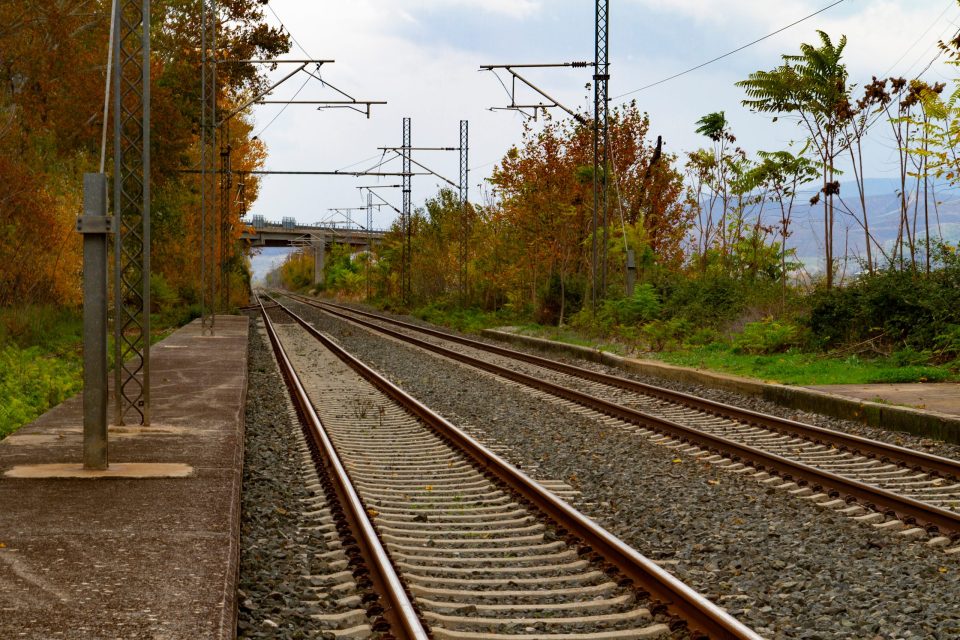
What happened to safety systems?
As already mentioned, the Greek railway network requires fundamental investments. Basic signalling, ERTMS, ETCS and GSM-R are missing from the network or the operating rolling stock. Specifically, the ministerial report explicitly states that “ETCS Level 1 is not fully operational in any part of the Greek railway network and that GSM-R does not work neither between different train drivers nor between train drivers and station masters”. In practice, train transit safety in Greece relies solely on employees using manual control systems.
Regarding GSM-R, the system has been deployed in Greece since 2018 in parts of the network; however, Hellenic Train has completed its implementation in only a few trains, thus keeping the majority of rolling stock unequipped. As for ETCS, the system was commissioned for implementation on the central Athens-Thessaloniki axis as early as 2007 with a budget of 17,171,261 euros. The project was supposed to be ready by mid-2010. Since then, its completion has been extended six times, with the latest deadline for delivery being somewhere in 2025.
Market monopoly
Two things stand out from the report, with the first being the disorganisation and fragmentation of the Greek railways. The Greek rail market is monopolised on freight and passenger services by Hellenic Train, which belongs to the Italian state-owned FS. The report considers the lack of diversity and market monopoly as factors hindering further development due to the lack of incentives. Additionally, it partially blames EU legislation promoting rail market liberalisation for this state of affairs.
However, the Greek government decided to privatise the state-owned railway operator by selling it a few years ago to FS, leading to this monopoly. Another approach would be to maintain the operator’s control and open the market to more companies to boost competition and development. In this way, Hellenic Train could be more incentivised to, for instance, equip its trains with GSM-R or ETCS, and more companies active in the Greek network could help speed up such developments by providing their technical knowledge and experience from other countries, among other things.
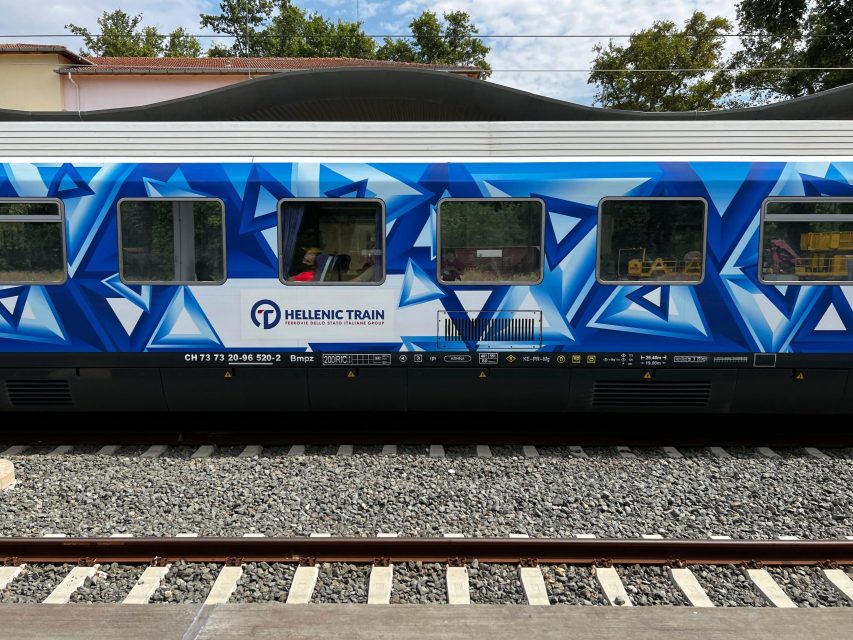
At the same time, the monopoly also hinders transparency regarding investments. For instance, in the case of ETCS implementation, OSE, the Greek Infrastructure Manager, and its subsidiary ERGOSE which undertakes construction projects, are the only contractors that can implement such upgrades. They are both state-owned companies which, however, as mentioned before, fail to deliver their projects since there is no supervision of their progress and no incentives to speed up their work or deliver it on time the least. Of course, this can occur in other countries, too. Yet, the fact that ETCS is still not working in Greece is indicative of the situation.
A matter of perspective
The second point standing out from the report concerns the misinterpretation of what railways mean for transport and development. Some of the report’s final remarks underline that “it is obvious that (especially compared to the EU) the Greek railways are a small and perhaps negligible component of the Greek transport system”. In 2022, Greek passenger rail had a share of 0,6 per cent, compared to railways in passenger transport for EU countries, which is around 5,5 per cent.
The situation is similar for rail freight since last year rail freight transport had a share of 3,2 per cent compared to the EU benchmark of 16,1 per cent. In Greece, the railway network is occupied basically by two main lines. Nevertheless, governments have failed to maintain and upgrade these two main lines for the past five decades, with the results reflected in March’s accident.
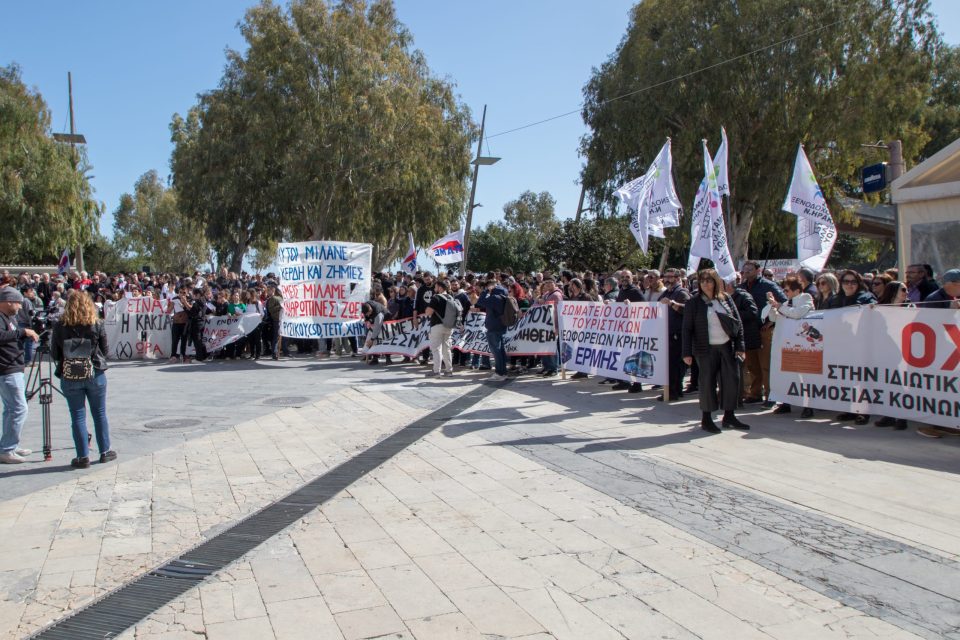
The report’s explanation for this situation is quite intriguing. It is mentioned that one of the reasons for the underdeveloped railways is that Greece is an island nation and that Greeks do not consider using the railways because they are not as luxurious as driving a car. This excuse or interpretation is quite the oxymoron. That is because the Greek state has been undertaking massive road infrastructure projects for years while divesting the railways. Consequently, it is understandable for citizens or even transport companies to choose road transport since rail is not attractive because, in most cases, it is slow, unreliable and unsafe.
Also read:
-
First findings rail accident Greece: ‘Personnel insufficiently trained’
-
Greece: at least 40 dead, 85 injured following passenger and freight train collision
You just read one of our premium articles free of charge
Want full access? Take advantage of our exclusive offer




